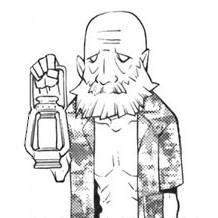and I can’t really describe how. Their is more like a they with an r on the end.
I hadn’t thought about it before, but on reflection, I do too. And I wouldn’t be surprised if most people do.
Exaggerated a bit for effect, it would be more or less:
There = thehr
Their = thayr
They’re = thay-r
“There” is just simple and straightforward with a pure short ‘e’ sound and no particular stresses.
“Their” has more of a long ‘a’ than a short ‘e’ sound, and a bit of stress on the vowel sound.
“They’re” also has more of a long ‘a’ sound and it’s pronounced just a fraction longer than in “their”, and there’s a very slight pause between the vowel sound and the ‘r’.
Huh… learn something new every day.
You described it perfectly.
I do it the exact same way, and was about to type that out myself but you said it much better. It’s funny the nuance to language that exists.
I guess you’re a native speaker. As a foreigner, I can only nod my head. We know.
They’re/their/there are completely different words. They mean different things and they’re pronounced ever so slightly different, and you’ll get you hand chopped off by a centimeter ruler if you do it wrong.
“There” is clearly longer than “their”.
“There” is one tone. “Their” is rising.
Seriously, you can actually hear it? Even wilder.
It differs by region and dialect. The English speaking world has wildly different pronunciations, even within relatively close proximity.
This is the best explanation
Honestly I thought the distinction was just American but you’re right, I think English uses slight intonation for context on nouns/verbs/prefixes but in a way we don’t always write down or care about.
This is why I never understood the confusion with which spelling to use. Just say it in your head.
You should use the proper spelling. Pronunciation does not equal meaning when reading.
Exactly…
Oh you’re agreeing with me! I thought your optional point was arguing against.
The most bizarre one for me is pronouncing the plural of woman as “wimmin.” Can’t explain it, can’t work around it. It is what it is.
You’re right, shit, I do too.
Why is that bizarre? That’s how you’re supposed to pronounce it.

Atlantic Canada calling:
- There: Th-air
- Their: Thur
I wonder if it’s conditioned by word stress. “There” is usually the object of a phrase (and therefore stressed), while “their” usually modifies a following noun that gets the stress instead.
Would that be true if I’m just saying the word in my head though? I think there’s a case for that since I’m probably thinking of the word in the context of a sentence (any sentence) when I say it in my head.
What about “there’s” vs “theirs”? Those would tend to have the opposite stress pattern.
I think I still stress there’s because it’s got that missing i. I go lighter on the theirs.
As a native english speaking, i tried to write the slight difference in the way i say them both (I didn’t realise i said them differently until today) but I couldn’t quite put it in writing so i deleted my comment 🤣
deleted by creator
I had a friend from australia who pronounced every vowel of a word distinctly…. so consecutive vowels like ei or ea or ou, somehow she’d enunciate them distinctly.
It’s ther (or thehr, if that makes it easier to hear in your head) theyr and theyur
Seriously. There is a shorter word when pronounced, their has that sharp I/y sound, but cuts off right after the r. They’re is pronounced with the they-are slurred like all contractions should be.
How do you pronounce “they’re”?
I hint at the missing a. It’s weird to notice because someone was saying how hard Cantonese is because each nuance may mean a different word. Do we have that too or is it completely different? I don’t know Cantonese so I have no idea, lol.
As someone who speaks Cantonese, it’s more that Cantonese has six tones, rather than similar-sounding vowels. People who don’t know how tonal languages work are prone to fucking it up, cuz we have relatively quite a lot amongst the more popular languages. Plus the large number of homophones cuz of the monosyllablism of Chinese languages where each syllable has its own character, you get a lot of context-dependent words. Also makes for some puns, but yeah.
I think I get it, Cantonese speakers use the tonal sounds and people understand it from the tonal sounds for the most part. Whereas even though the words are completely contextual for English, no one would really know that they were changing the tone?
Not quite. Tonality is just one part of differentiating words, like how in some languages (such as Mandarin) you differentiate between the aspirated “p” in English “pit” and the unaspirated “p” in English “spit”. (Put your hand in front of your mouth as you say each one and you’ll tell the difference!)
You’re right in saying that tone doesn’t really give lexical meaning in English (though it does provide meaning — such as with how a rising tone indicates a question). However, the problem is more about homophones — words that sound the same but mean different things. In English, an example of this would be the words “too” and “two”. Read identically, the words mean completely different things and one must rely on context to figure out what they mean, if they aren’t written down. However, in English, this isn’t a big problem, as words are not just down to single syllables — it’s harder to have a duplicated word if the word “antidisestablishmentarianism” is technically one word and valid English used in certain contexts. In Cantonese (and Mandarin — I can’t speak for all Sinitic languages) however, words are individual syllables. You group them at times to form "詞語“, which are basically multisyllable words, such as "電視“ — literally “electricity sight”, which means television. However, most of the time, we define words are single syllables, such as "我“, which means “me”, and "你“, which means “you”. "詞語“ are most common in speech, but particles and stuff are monosyllabic; both as in the grammatical particles such "同“ — meaning “and” in Cantonese — and in the literal chemistry particles such as hydrogen (氫) and oxygen (氧).
In linguistics, we would say that Cantonese is an “isolating” language, as each morpheme is its own word. Morphemes are the smallest blocks of meaning in language — for example, the word “antidisestablishmentarianism” can be broken into anti-, dis-, establish, -ment, -ar(y), -an, -ism. Isolating languages tend to have around 1 word per morpheme. English is an example of an “agglutinative” language, where you stick morphemes together to form words. The fact that each morpheme is 1 word, and that each word is 1 syllable, means that the meaning of a sentence can change dramatically by just changing one syllable, or even by changing how you read one syllable.
also sorry for the ramble I’m autistic XD
Thank you for the ramble, that was great. I finally understand why everyone thinks Cantonese is so hard. So many different combos and there are probably regional differences as well. We have a few words that can be mistaken for each other, so it almost seems quaint compared to monosyllables put together to form complex and different meanings done with different tones.
Yeah, like the word “同” there which means “and” sounds the same as "童“ (child) and "銅” (copper), as well as a bunch of uncommon words such as “瞳”, which I usually see combined with "孔” (a word for hole which you may have seen in Confucius’s name as his surname) to form "瞳孔“, meaning pupil (as in the eye, not student). And now imagine every single word could have stuff like that.
I’ll go ahead and take Cantonese off my bucket list permanently.
There is a subtle difference for me. It’s hard to describe and I am not a linguist, but it’s like my mouth is a little bit tighter when I’m referring to the possessive their.
It’s super subtle and I wonder if linguists pick it up or it’s too subtle to hear.
This is probably a regional thing. In Alberta I don’t think I have ever heard someone say these differently.
Maybe it’s a US thing? I just tried it and I pronounce them exactly the same.
I don’t know, it could be? Another person that isn’t a native speaker of English said that they could hear it, but that might just be for the US.
I think I could hear it (am native English speaker from the UK), but it’s definitely not how I speak. Both words sound exactly the same when I pronounce them.









